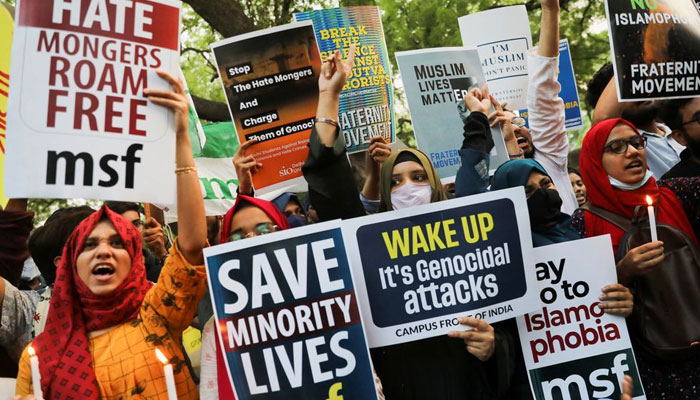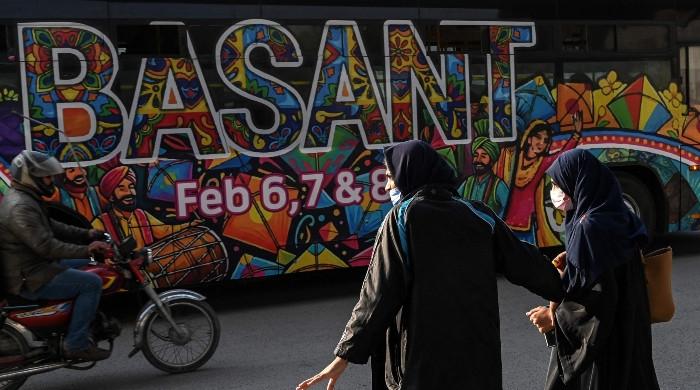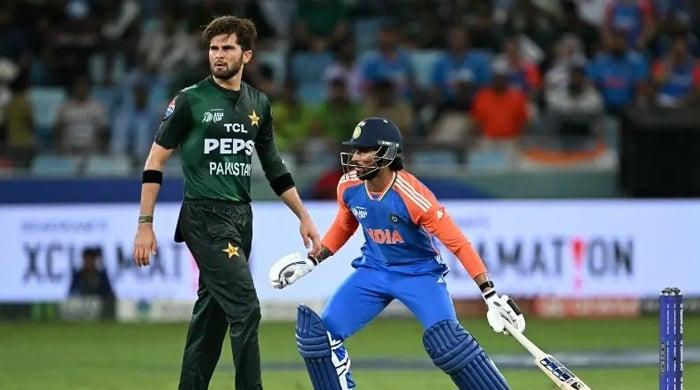What it feels like to be a Muslim in today’s India?
I can’t even imagine politicians calling me a termite, classifying me as Babar ki aulad and repeatedly telling me to go to Pakistan, writes Karan Thapar
April 27, 2022

This Sunday I want to raise a question that, if you try to answer it, will help you understand one of the saddest and most disturbing transformations happening in our country: what does it feel like to be a Muslim in today’s India? In fact, let me refine that. I’m not talking of the rich, influential or well-educated; I’m specifically referring to poor and, often, illiterate Muslims, who have little by way of support other than what they can provide for themselves. They’re the vast majority. What does it feel like to be one of them?
In the last few months, they’ve heard calls for genocide and ethnic cleansing. Accused of rioting, their homes have been demolished, often before their presence leave aside guilt was established and, at times, without prior notice. Even widows, who are beneficiaries of the PM Awas Yojna, have thus suffered. Their minor children have been detained for hearing Pakistani songs. Whilst men who claim to be Hindu priests have publicly threatened to rape their women.
This is by no means a comprehensive list. It’s simply a collection of things that occurred to me when I started to write. Proper research would throw up many more. The question is what would it feel like if this happened to you?
The truly bizarre part is despite this despicable treatment many of us consider Muslims “appeased”. If only we knew the facts. The truth is that in almost every sphere Muslim representation is way below their proportion of the population. As far back as 2006, the Sachar Committee established that in economic and social terms Muslims are worse off than scheduled castes and scheduled tribes.
Read more: Muslims fear more repression as Indian mega-state votes
This is what that amounts to. I’m relying on Aakar Patel’s book ‘Our Hindu Rashtra’. Muslims are nearly 15% of the population but only 4.9% of state and central government employees, 4.6% of the paramilitary services, 3.2% of IAS, IFS and IPS and, perhaps, as low as 1% of the army.
In proportionate terms, they should have 74 seats in the Lok Sabha. They have only 27. India does not have a Muslim chief minister in any of its 28 states. In 15, there is no Muslim minister, in 10 there’s just one, usually in-charge of minority affairs.
Neither in 2014 nor in 2019 does the ruling Bharatiya Janata Party have a Muslim Lok Sabha MP. Patel says it hasn’t fielded a Muslim candidate in any Lok Sabha or Vidhan Sabha election in Gujarat since 1998. That’s 24 years without a Muslim candidate although 9% of the population is of that faith.
I could carry on but I won’t. I’ve made my point. I hardly need to add R&AW does not have nor has ever employed a Muslim. In these circumstances, it would be very surprising if it had.
Read more: India has turned Muslims into a ‘persecuted minority', says Noam Chomsky
However, what these facts don’t convey is what it feels like to be the subject of deliberate, continuous and, often, escalating hate. We don’t know because it’s never happened to us. I can’t even imagine politicians calling me a termite, classifying me as Babar ki aulad and repeatedly telling me to go to Pakistan. Yet that’s what our Muslim brothers and sisters face almost every day.
Last week, 13 opposition leaders wrote to the prime minister asking him “to speak against the words and actions of those who propagate bigotry”. I don’t know if he will. For an inexplicably long time, he’s been silent. But what about the rest of us? Do we not have a duty to speak? Isn’t our silence, for whatever reason, permitting the worst voices to be heard and get away with it?
These days, when wisdom is often reduced to WhatsApp memes, there’s one that applies to all of us: “Evil happens when good people stand by and do nothing about it”. If you want that put in highfalutin terms, let me paraphrase John Donne: “No man is an island…the bell that tolls today for Muslims will one day toll for thee.”
Watch: Notorious for hate speech, Indian priest urges Hindus to take up arms against Muslims
The writer is an Indian journalist, news presenter and interviewer.
This article originally appeared in the Hindustan Times as ‘What it feels like to be a Muslim in India’ (Apr 23, 2022).
Originally published in The News











